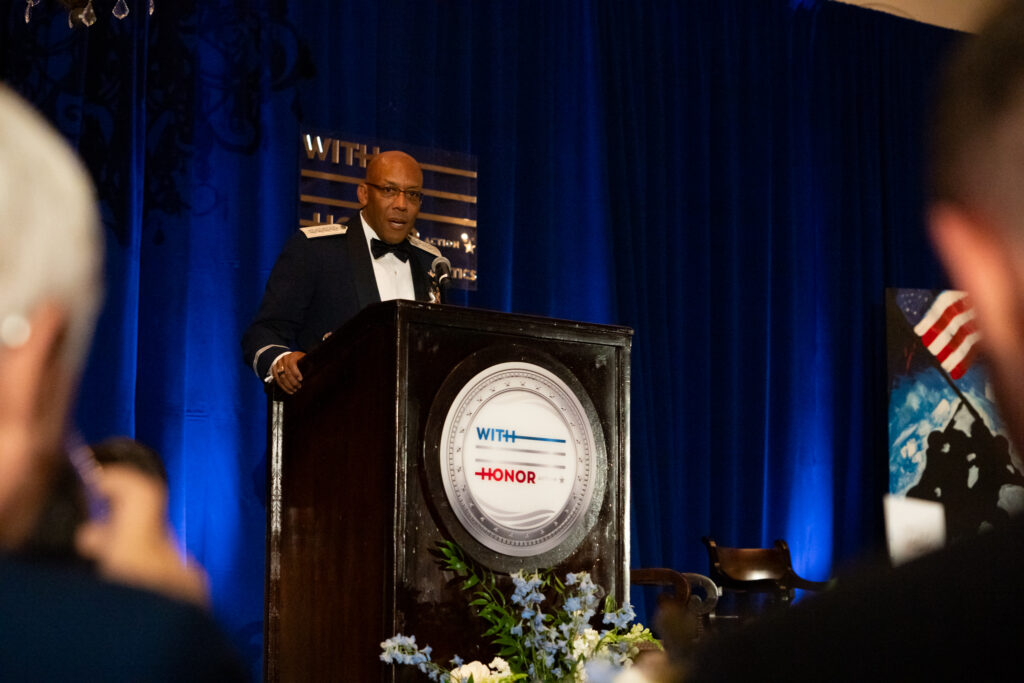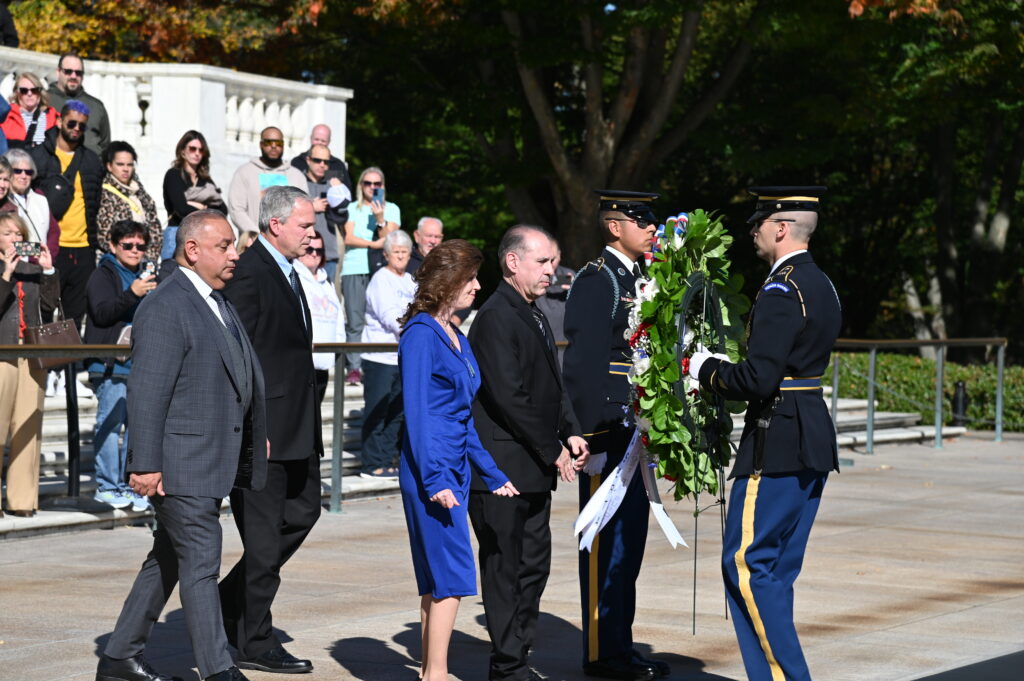1. Establishment of the Office of the National Cyber Director
Establishes an office for the principal advisor on cybersecurity policy and strategy to the President.
2. Creation of a Joint Cyber Planning Office
Establishes an office in the Cybersecurity and Infrastructure Security Agency (CISA) to coordinate public and private sector entities to plan for cyber defense operations, including identifying and detecting threats as well as plans to mitigate and recover from attacks.
3. Sense of Congress on U.S. Commitment to NATO
Reaffirmed strong congressional support for the North American Treaty Organization (NATO), which is critical to achieving United States national security interests and defense objectives around the world.
4. Defending America’s 5G Future Act
Countered foreign adversaries at home and abroad by codifying Huawei’s place on the Commerce Department Entity list; addressing foreign talent recruitment programs, and requiring the disclosure of foreign funding sources to obtain federally funded research awards.
5. Make Permanent Section 1264 of the FY18 NDAA
Requires the President to continue to report to Congress regarding the legal and policy frameworks for the use of military force and related national security operations.
6. Honoring Our Promises through Expedition (HOPE) for Afghan SIVs Act
The HOPE for Afghan SIVs Act was sponsored by FCC Members Reps. Jason Crow, Seth Moulton, Jimmy Panetta, Peter Meijer, Salud Carbajal, James Baird, Elaine Luria, Mariannette Miller-Meeks, Scott Franklin, Mikie Sherrill, Chrissy Houlahan, Don Bacon, Van Taylor, and Mike Garcia. The act’s key provisions were passed in a supplemental appropriations act in late July, shortly before the withdrawal from Afghanistan unfolded. It was among the most bipartisan acts to pass Congress in recent years. The act waived a requirement that SIV applicants receive a medical screening in Afghanistan. By waiving the screening until their arrival in the United States, the act helped cut red tape and expedite the SIV application process for vulnerable Afghan allies. Additionally, the bill appropriated $500 million to evacuate Afghan allies ahead of the U.S. troop withdrawal. Another $600 million went to the State Department for refugee and migration assistance and $25 million to the Department of Health and Human Services’ Office of Refugee Resettlement for the special immigrant visa program.
7. Averting Loss of Life and Injuring by Expediting SIVs (ALLIES) Act
The ALLIES Act, led by FCC Members Reps. Jason Crow and Peter Meijer, passed alongside the HOPE act and increased the total number of available special immigrant visas for Afghan nationals by 8,000 – thereby raising the total available visas by over 30%.
8. Welcoming Evacuees Coming from Overseas to Mitigate Effects of Displacement (WELCOMED) Act
The WELCOMED Act was sponsored by FCC Members Reps. Seth Moulton, Don Bacon, Elaine Luria, Peter Meijer, Mariannette Miller-Meeks, Jason Crow, Jimmy Panetta, Kai Kahele, Mikie Sherrill, and Conor Lamb. The bill provided crucial resettlement assistance to Afghan evacuees. Due to the rushed nature of the Afghan evacuation, many Afghans came to the U.S. under a program called ‘Humanitarian Parole’. Under Humanitarian Parole these evacuees were ineligible for the assistance that they would have received had they arrived as refugees or SIVs. The WELCOMED Act rectified this injustice and provided crucial resettlement assistance to deserving Afghans.
9. Expediting Verification of SIV Applicants Through the Synchronized Predeployment and Operation Tracker (SPOT) Database
Passed in the defense bill that President Biden should soon sign into law, this provision directs the DOD and Department of State (DOS) to submit a joint report on the use of the Synchronized Predeployment and Operational Tracker (SPOT) database to identify Afghans eligible for special immigrant visas. The SPOT database is a government contracting database and will help verify Afghan contractors who are eligible for SIVs. The rapid collapse of the Afghan government and a lack of U.S. consular presence has exacerbated the problem of identifying SIV eligible Afghans; this legislation helps address this issue.
10. Afghan War Commission Act
The Afghan War Commission Act led by FCC Members Reps. Peter Meijer and Seth Moulton, creates a non-partisan, independent commission that will conduct a comprehensive examination of the War in Afghanistan. Passed in the defense bill that President Biden should soon sign into law, the commission will be required to produce a public and unclassified report with actionable recommendations so the United States learns from our experience in Afghanistan and is prepared for future conflicts. As partisan recriminations have swirled in the aftermath of the U.S. withdrawal from Afghanistan, no serious, objective examination of the nearly 20 year war has occurred; this Commission based off of the 9/11 Commission will fix that.
11. Yearly Reports by the Department of Defense on Implementation of the National Security Commission on Artificial Intelligence’s Recommendations
Led by FCC Member Rep. Chrissy Houlahan, this provision requires that the DOD submit yearly reports on the status of recommendations from the NSCAI. This provision requires that the DOD develop a plan to implement all NSCAI recommendations specific to the DOD, or to brief Congress on their justifications for not implementing specific recommendations.
12. Development of a Digital Infrastructure Plan
This provision establishes a DOD working group and tasks them with developing a plan to establish a modern information technology infrastructure capable of incorporating state of the art tools including artificial intelligence.
13. Establishment of Digital Recruiting Offices
This provision establishes a chief digital recruiting officer within the office of the Under Secretary of Defense for Personnel and Readiness, and it charges the officer with identifying DOD digital talent needs and skills gaps and recruiting individuals to address those gaps.
14. Updating Federal Occupation Series Fields
This provision directs the Director of the Office of Personnel Management to establish or update occupational series covering federal government positions in the fields of software development, software engineering, data science, and data management. The incorporation of new occupational career fields will help focus the development of personnel in these fields.
15. Integrating Emerging Technology into Professional Education
This provision establishes an executive education course within DOD on emerging technologies. The course for general officers and senior executive-level civilian leaders is to be designed specifically to prepare new general and senior executive-level civilian leaders on relevant technologies and how these technologies may be applied to military and business activities.
16. Assess the Feasibility of a National Cyber Academy
This provision requires the DOD to determine the overall workforce requirements for cyberspace and information warfare personnel across the active and reserve components of the Armed Forces. Additionally, it requires the DOD to determine and report whether the cyber mission requires a graduate level professional military education college similar to the war colleges for the Army, Navy, and Air Force.
17. National Defense Science and Technology Strategy
This provision tasks the DOD to develop a strategy articulating the science and technology priorities, goals, and investments of the DOD. Additionally, it requires the DOD to submit recommendations for future defense research, and to establish an integrated approach to the identification, prioritization, development, and fielding of emerging capabilities and technologies.
18. Arctic Security Initiative Act
The Arctic Security Initiative Act led by FCC Members Reps. Mike Gallagher and Elaine Luria, requires the DOD to conduct a security assessment of the Arctic region and establish an Arctic Security Initiative with a five-year plan to fully resource the DOD and provide individual service-specific strategies for the Arctic.
19. Taiwan Partnership Act
The Taiwan Partnership Act was led by FCC Member Rep. Mike Gallagher, and critical provisions of the act were passed as part of the NDAA. The legislation requires the DOD conduct a yearly briefing on cooperation between the National Guard and Taiwan during the preceding year and an evaluation of how to improve future cooperation.
20. Establishment of a Casualty Assistance Program Working Group
Led by FCC Member Rep. Don Bacon, this provision improves the casualty affairs programs at the Department of Defense by creating a working group to standardize casualty assistance officer training across military departments. The legislation also develops an iterative process of assessment that will continue to improve the program.
21. Modification to Annual Report on Military & Security Developments Involving the Russian Federation
Immediately following the Russian invasion of Ukraine, For Country Caucus Co-Chairs Jared Golden and Don Bacon prioritized building relationships with counterparts in the Ukrainian Parliament and engaging caucus members on all major pieces of legislation involving Ukraine. This provision tasks the Department of Defense with studying and distilling key lessons learned from the first year of this escalated conflict.
22. Sense of Congress on Taiwan Defense Relations
Expresses the sense of Congress that Taiwan’s future will be determined by peaceful means, not Chinese force, and that the United States should continue to support the development of capable, ready, and modern Taiwanese defense forces that are prepared to repel a Chinese assault.
23. Extension of the Afghan Allies Protection Act
This legislation championed by For Country Caucus members Representatives Peter Meijer and Seth Moulton (the recipients of this year’s With Honor Action Principles Before Politics Award), among other veterans in Congress, extends the Afghan Special Immigrant Visa program until December 31, 2024. It further allows for an increase of 4,000 additional visas.
24. Baltic Reassurance Act
The Russian invasion of Ukraine has made it clear that defending democracies abroad requires strong, multilateral institutions and partnerships to respond to cyber threats. The Baltic Reassurance Act, led by For Country Caucus member Representative August Pfluger, directs the Department of Defense to continue its comprehensive, multilateral Baltic Defense Assessment. This assessment focuses on interoperability between Estonia, Latvia, and Lithuania with NATO and efforts to improve resilience to hybrid and cyber threats in these countries.
25. Department of Defense Cyber & Digital Service Academy
Championed by For Country Caucus Representatives Chrissy Houlahan and Mike Gallagher, the DoD Cyber and Digital Academy establishes a scholarship-for-service program for students pursuing tech-related programs with a mandatory service requirement in the Department of Defense. This legislation, a recommendation from the National Security Commission on Artificial Intelligence (AI), will help strengthen technical talent, modernize our military, and prepare for the sweeping technological advancements we face in AI and other areas.
26. DHS Roles & Responsibilities in Cyberspace Act
Tasks the Secretary of the Department of Homeland Security with conducting a review of its incident response plans and sets the conditions for improvements to our cyber incident response framework.
27. Cyber Diplomacy Act
In April 2022, Secretary of State Antony Blinken announced the creation of a Bureau of Cyberspace and Digital Policy to address “the national security challenges, economic opportunities, and implications for U.S. values associated with cyberspace, digital technologies, and digital policy.” Section 9502 codifies the Secretary’s announcement. This bureau will be led by the first-ever U.S. Ambassador-at-Large for Cyberspace and Digital Policy Nathaniel Fick, a Marine who served formerly on the With Honor Action Advisory Board.
28. Short Course on Emerging Technologies for Senior Officials
This provision, a priority of both the Cyberspace Solarium Commission and a recommendation of the National Security Commission on Artificial Intelligence, directs the Secretary of Defense to develop a short course addressing how recent technological advances affect the activities of the Defense Department.
29. Support for R&D of Bioindustrial Manufacturing Processes
Bioindustrial manufacturing uses living organisms, cells, tissues, or enzymes, to produce materials that can be more environmentally sustainable and may help create a more resilient supply chain. This provision authorizes the Secretary of Defense to strengthen our bioindustrial manufacturing infrastructure through the creation of regional bioindustrial networks. This initiative intends to help strengthen bioindustrial manufacturing in the U.S., securing supply chains essential to the production of critical chemicals and materials. For Country Caucus Members Representatives Seth Moulton and Mike Gallagher helped establish a new bipartisan National Security Commission on Emerging Biotechnology that aims to provide insight and recommendations to the 118th Congress. We plan to help pass many of these recommendations into law in this important and dynamic area of rapid technological advancement.
30. Improvements to Principal Cyber Advisors
Codifies the offices and roles of the Principal Cyber Advisors (PCA) and authorizes the PCA to the Secretary of Defense to certify portions of the Department’s Cyberspace Activities Budget. It simultaneously integrates and streamlines a budgetary process for defense-related cyber capability development and security.
31. Cybersecurity Grants for Schools
With cyberattacks targeting vulnerable schools on the rise, this provision fulfills a Cyberspace Solarium Commission recommendation to increase funding for K-12 cybersecurity education, both for educators and students.
32. Enhancing Maritime Cybersecurity
Cyber attacks on the maritime ports that are integral to the supply chain increased by 400% in 2020. This provision tasks the Commandant of the Coast Guard and relevant cybersecurity agencies with developing a list of tools and resources open to the public. They will be designed to assist maritime operators in identifying, responding to, and recovering from cyber incidents.
33. Dr. David Satcher Cybersecurity Education Grant Program
A recommendation from the Cyberspace Solarium Commission, the Dr. David Satcher Cybersecurity Education Grant Program will award funding to minority-serving or historically-black institutions of higher education to establish or expand cybersecurity programs, build public-private partnerships, and improve research and development efforts.
34. Federal Cyber Scholarship-For-Service Program
The Federal Cyber Scholarship-For-Service provision enhances the existing CyberCorps program which provides funding to students in return for a period of service working in the federal government.
35. International Standards Development
A recommendation from the Cyberspace Solarium Commission, the Dr. David Satcher Cybersecurity Education Grant Program will award funding to minority-serving or historically-black institutions of higher education to establish or expand cybersecurity programs, build public-private partnerships, and improve research and development efforts.
36. Standards Development Organization Grants
Emerging technologies like artificial intelligence need standardization and guidelines – the U.S. will be stronger if our small businesses and industry leaders help lead that effort. This provision, a recommendation from the National Security Commission on AI, creates a 5-year pilot program to award grants to small businesses to support their participation in international standards development organizations.
37. Cyber Workforce Development Research & Development
A recommendation from the Cyberspace Solarium Commission this provision tasks the Director of NIST to award grants to nonprofit organizations and institutions of higher education to carry out studies on the cyber workforce, its constitution, current trends, and factors influencing retention, growth, and development of that workforce.
38. Office of Research Security & Policy
A recommendation from the National Security Commission on AI, this provision establishes an Office of Research Security and Policy within the National Science Foundation. The NSF will coordinate efforts to identify and address potential security risks that threaten research integrity to prevent intellectual property theft.




